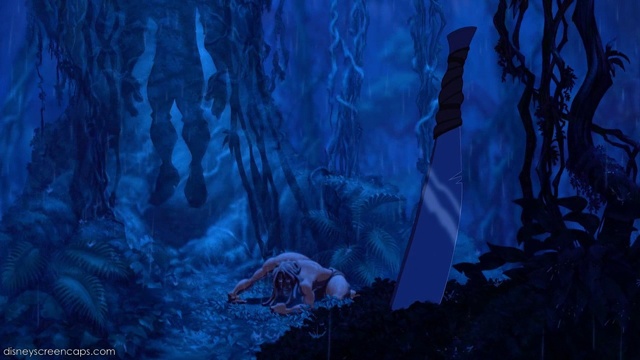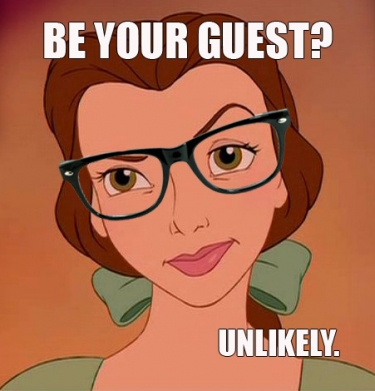Here be spoilers to Guardians of the Galaxy. Turn back if you don’t wish to have things ruined. Onto the post!
Part of things you need to do when you’re writing a movie is to watch current movies– especially movies that fit the genre you’re writing for— so you can do the things that people will like, and don’t do anything that Battlefield Earth did. So, I guess that puts Scientology out of the picture?
Anyway, if you don’t know, everyone is still fawning over Guardians of the Galaxy, Marvel’s latest sci-fi superhero movie on their disturbingly fast movie release schedule. And, you might be aware, I’m trying to write a sci-fi Disney film. I saw Guardians, and came back with, well, questions. So, I decided to go see it twice to see if anything made more sense on a repeat watching.
Also, I wanted to see it in 3D because I have a weakness for eye candy.
And now I’m gonna write about it, because Disney owns Marvel. Boom.
So, lets kill the most important elephant in the room– the 3D was excellent. I have gone on record having said that 3D sucks and will always suck, but if you have even a little bit of cash to spare for the more expensive ticket, I highly recommend it. Yep, eating my words. There are times when it gets flashy (I winced from exploding debris, in actual surprise and fear, not cheese), but there is actually a touch of subtly to it, and it turns out that makes the whole experience way better.
With that out of the way, lets talk about why I felt the need to re-watch the film. Namely, my spirit animal, Rocket Raccoon.

I know that everyone loves Groot, but my favorite character is Rocket. Groot makes a close second (but more on that in a bit). There is a problem with this. Rocket (at the very least, maybe also Groot) is entirely CGI– not even supported with motion capture work ala Andy Serkis in The Lord of the Rings.
I was not ok with this revelation. There are three Guardians that are played by real people, and I found the talking raccoon to be the best character? That can’t be right. Better re-watch.
And on re-watch, Rocket is still the best.
In an old draft on this post, I spent many, many paragraphs talking about acting and CG in acting and all sorts of things that are very much not writing. I’m a writer. This blog is about writing. So, lets just say that Rocket (and Groot) are just as well acted as the rest of the cast and just look at the writing.
When it comes to characters in GotG, everyone gets what I’m going to term as a ‘heroic beat’. One of the underlying themes is that this is, indeed, a ragtag group of A-holes, but in each character there lies something heroic. Perhaps its deep down, but it’s there. Everyone gets a scene where they find that bit of heroism in themselves, and react accordingly.
And these beats are not all written equally.
Of particular weakness is Drax’s beat, which somehow violates “show, don’t tell” in a movie, which feels impossible. It’s when he realizes that all his actions were really just a mask for the loss he felt– and just sorta announces this to Rocket and Groot. Yes, it fits Drax’s character to make this announcement. Yes, the movie points out why it’s stupid a second later.
Gamora has her heroic beat while a lot of other things are happening. She goes into the Collector’s place ready to sell whatever the orb is (and she knows it’s a weapon) for all the money so she can escape her shitty past. She comes out of the Collector’s place after the Infinity Stone does its ‘wreck the shit out of everything’ thing, ready to go back and get thrown in prison to put the Infinity Stone in safe keeping. It’s not really shown– she goes in, purple sparkles (more on that in a bit as well)– and comes out heroic.
Quill’s beat is kinda cliched. He makes the choice to sacrifice his life to keep Gamora alive, and the whole thing is set up the exact same way it’s been set up hundreds of times before. We see the emotional turmoil as he realizes he can’t just sit there and watch Gamora die. Yes, it slots in with his character nicely, and the movie makes fun of it later, but still.
Now, lets look at Rocket and Groot’s beats. Rocket’s beat is the “beating up a tuft of grass” line. He wants to let go of these people he sees as a liability, but he can’t. We actually see him emotionally deal with the consequences of realizing he can’t walk out on this one– with rage. He hates this new-found compassion in him. It totally sucks to be a hero.
Groot gets the best beat out of everyone– Groot’s heroic beat comes right as the big black bad ship is falling out of the sky. The ‘We Are Groot’ line. The discovery of something heroic to enable his sacrifice. It’s still a painful moment for him– he starts to cry, after all, being a hero is hard.
It all comes down to seeing the emotional crucible required to go from jackass to hero. In only two characters do we really see that emotion played out (pssst. It’s Rocket and Groot. If you didn’t know. pssst). And, part of that is the scenes that were supposed to show a lot of the emotion in two of the three other characters aren’t really written to focus on that.
I might just be too jaded for Quill’s scene.
Could we have seen this emotional turmoil if the characters had been acted better? Yeah. The fix could go either way. This relates back to our Disney film because all of our protagonist’s barriers are emotional ones. All of the rough stuff we want to throw them through is about making hard choices and living with consequences.
Not that movie doesn’t do cool things with the fact that each character hits the heroic crucible at a different time. Gamora totally judges the hell out of Quill when he wants to sell the Infinity Stone for money because she’s become heroic and he’s not there yet. Her moral indignation is actually rather neat.
Now, why do I like Rocket over Groot? That’s entirely subjective, but mostly because Rocket drinks.
I really don’t want to continue this post, so I’m gonna end it here for now. Perhaps next week I’ll talk about the ending and how GotG’s popularity is a testament to theme trumping logic (because that movie doesn’t even follow its own internal logic). Or I’ll write some actual script some more and talk about animated Disney things.























